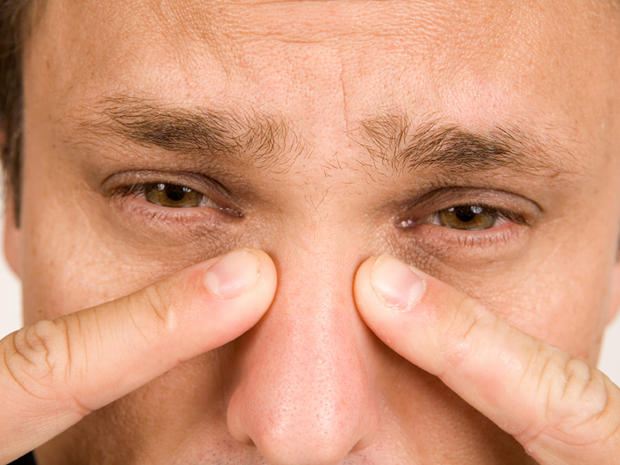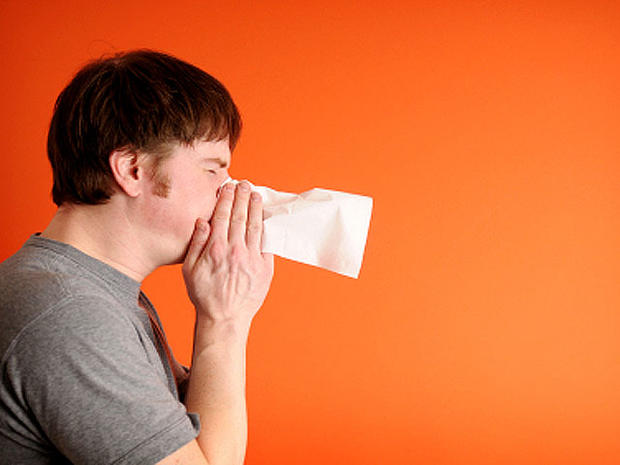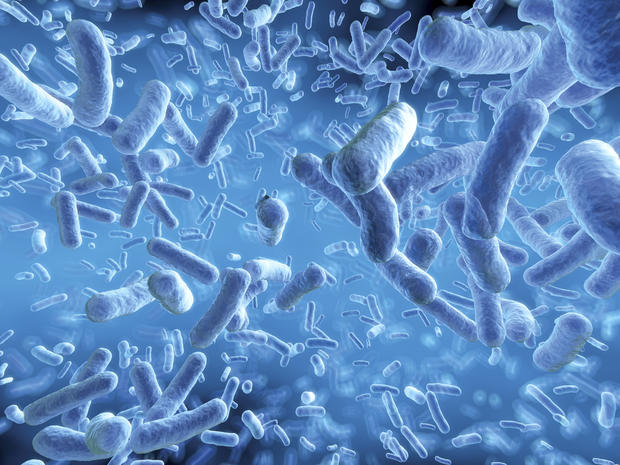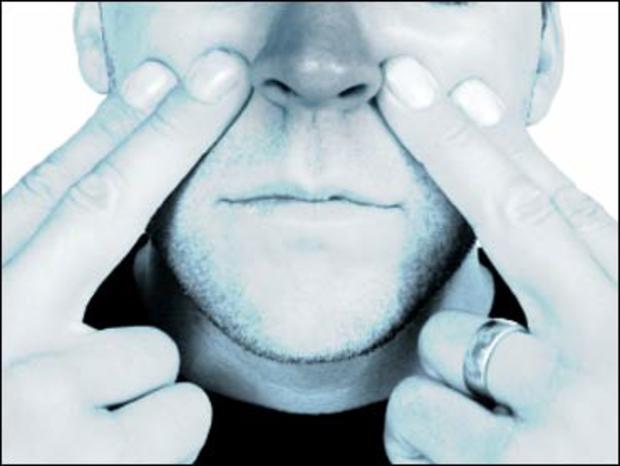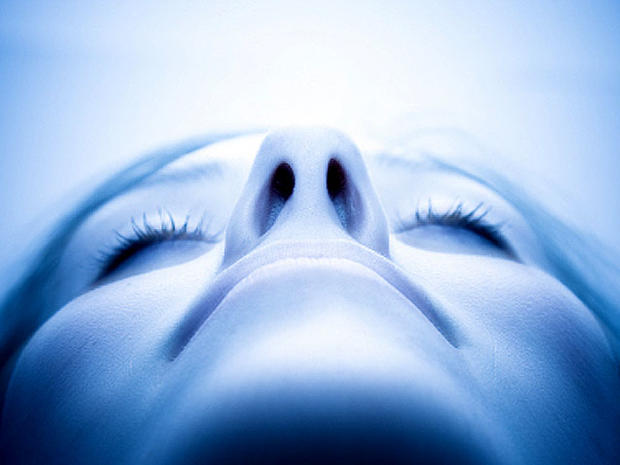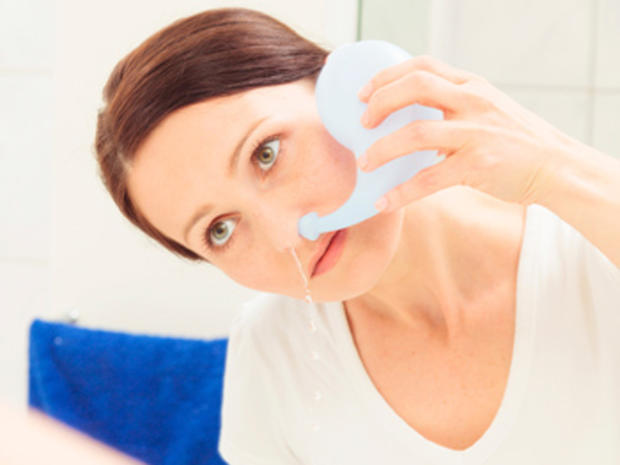13 sneaky causes of sinus trouble
Sinus infection relief
On the surface of things, the cause of sinus trouble is clear. Teeny holes that connect your nasal passages to your sinuses (basically a collection of hollow, moist cavities that lurk beneath your nose, eyes, and cheeks) get blocked. Then gunk builds up in your sinuses, germs may grow, and you feel, well, hideous.
But the cause of the blockage is sometimes trickier to figure out. From Health.com, here are 13 things that can cause an acute sinus infection (the most common type) and, in some cases, lead to a chronic sinus infection.
13 sneaky causes of sinus trouble
Viruses
If your sinus infection is caused by a virus, antibiotics won't help since these drugs kill only bacteria. Your symptoms will probably get better after about a week or so. A decongestant can help, but don't use it for more than four or five days to avoid becoming dependent.
The best defenses against these sinus infections are the same things that protect against colds and the flu. In other words, get a flu shot, wash your hands, and don't chill with the visibly ill.
13 sneaky causes of sinus trouble
Allergies
If you're prone to allergies or hay fever, avoid things that trigger allergic reactions, such as dust mites, pet dander, mold, and cockroaches. Prescription or over-the-counter antihistamines and prescription nasal sprays can reduce chronic inflammation in the sinuses and nasal lining.
13 sneaky causes of sinus trouble
Bacteria
Bacterial infections rarely jump-start sinus infections, but they are almost always the cause of complicating, secondary infections, says Dr. William J. Hueston, professor and chair of the Department of Family Medicine at the Medical University of South Carolina, in Charleston. In these cases, it's most likely Streptococcus pneumoniae or Haemophilus influenzae.
These bacteria lurk in healthy people; they're waiting for the right circumstances to grow. Take a decongestant during a cold to avoid those circumstances. If you do develop bacterial sinusitis, you can treat it with antibiotics.
13 sneaky causes of sinus trouble
Polyps
Chronic allergies can cause long-term swollen and scarred areas of the nasal passages and polyps, according to Dr. Hueston. People with nasal polyps often have a decreased sense of smell.
Polyps are treated with nasal steroid sprays or a short course of oral steroids, and if steroid treatments don't work, surgery may be necessary.
13 sneaky causes of sinus trouble
Irritating pollutants
Avoid these irritants as much as possible to reduce the occurrence of sinus infections, particularly if you suffer from allergies or asthma. An air purifier may also reduce pollutants in the air. (Read our buyer's guide to air purifiers.)
13 sneaky causes of sinus trouble
Swimming and diving
Diving into water can be a problem too. The pressure during a dive can push water into your sinuses, and irritate and inflame the tissue.
13 sneaky causes of sinus trouble
Flying
When the air pressure is reduced in-flight, it can cause pressure to build up in your head, which in turn can block your sinuses and air passages and aggravate cold symptoms. This is particularly problematic during takeoff and landing.
If you're congested or suffer from frequent sinus infections but can't miss your flight, use a decongestant nasal drop or inhaler before takeoff to keep your sinuses clear.
13 sneaky causes of sinus trouble
Fungi
When your immune system is vulnerable, fungi can grow, especially in damp and dark environments - aka your sinuses. The most common fungus associated with sinusitis is Aspergillus.
In some people, chronic sinusitis can be caused by an allergic reaction to a fungus.
Treatments may include surgery to remove the fungi, antifungal therapy, or scraping the infected sinus. See your doctor if you have fever, headache, and vision problems for more than 10 days.
13 sneaky causes of sinus trouble
Overuse of nasal products
If you use sprays for an extended period of time, you can become less sensitive to their effects so that your nose becomes swollen again, a condition known as rebound nasal congestion, says Dr. Bains.
As a result, prolonged use of OTC nasal sprays can lead to dependency, adds Dr. Hueston, who recommends that people who use sprays to treat cold symptoms stop after four or five days.
13 sneaky causes of sinus trouble
Smoking
"People who smoke may be at higher risk [of sinus infections], because their natural sinus-cleaning system is damaged by cigarette smoke," says Dr. Hueston. "So they accumulate more 'junk' in the sinuses, which can clog passages when they have a cold."
13 sneaky causes of sinus trouble
Lack of moisture or dry air
Therefore, doctors recommend you keep your nose as moist as possible. Start by drinking lots of water and avoiding caffeine, and use a humidifier to keep indoor air moist during the winter.
The occasional use of nasal irrigation treatments, like saline sprays, may also help treat or prevent sinusitis symptoms.
13 sneaky causes of sinus trouble
Unusual anatomy
Narrow drainage passages, tumors, or a cleft palate can block openings in the sinus, preventing mucus drainage.
The mucus can then get infected with viruses or bacteria, says Dr. Bains. A deviated septum - when the center section of the nose is shifted to one side - is often associated with chronic sinus infections, as are enlarged adenoids, tissue masses in the passage between the throat and nasal cavity that trap and destroy germs.
Surgery may be necessary to correct these abnormalities.
13 sneaky causes of sinus trouble
Chronic medical conditions
This thicker mucus, or an impaired ability to fight germs due to diabetes or HIV infection, can set the stage for sinus infections.
